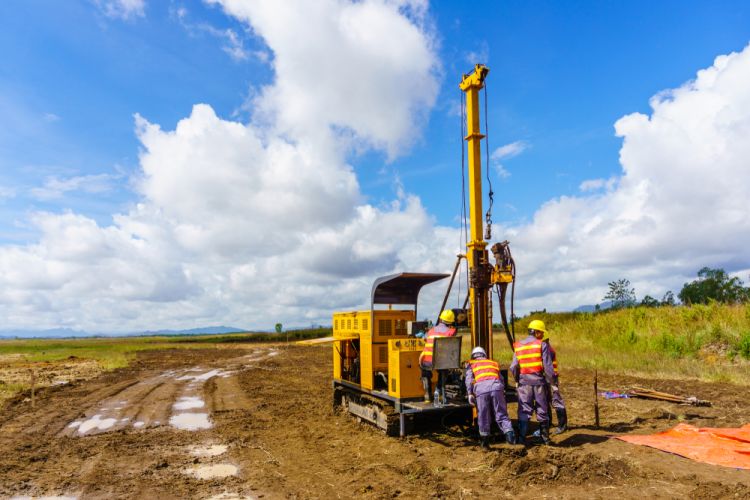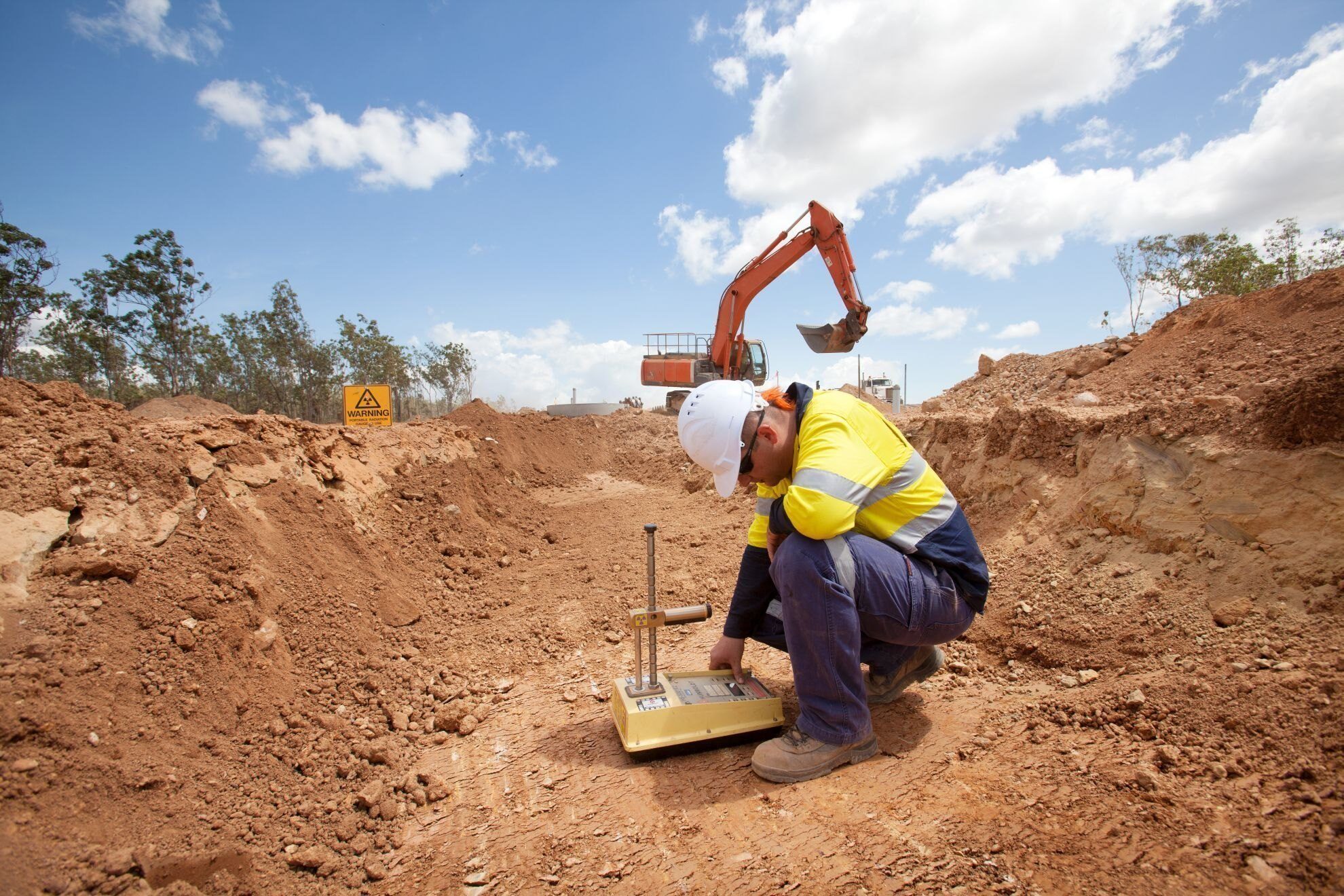The Specialized Geotechnical Engineering Solutions PDFs
The Specialized Geotechnical Engineering Solutions PDFs
Blog Article
Some Known Details About Specialized Geotechnical Engineering Solutions
Table of ContentsGetting The Specialized Geotechnical Engineering Solutions To WorkGetting My Specialized Geotechnical Engineering Solutions To WorkGetting My Specialized Geotechnical Engineering Solutions To WorkSpecialized Geotechnical Engineering Solutions - Questions
They conduct site investigations, accumulate samples, perform laboratory tests, and analyze information to assess the viability of the ground for construction tasks. Based on their searchings for, geotechnical designers provide recommendations for foundation style, incline security, retaining structures, and mitigation of geotechnical dangers. They team up with various other professionals, such as architects, structural engineers, and building groups, to ensure that geotechnical considerations are integrated into the overall project style and application.
Structure Layout: Geotechnical engineers play a crucial function in making foundations that can safely sustain the desired structure. They analyze the soil problems and tons requirements to figure out the ideal structure kind, such as superficial structures (e.g., grounds), deep structures (e.g., stacks), or specialized techniques like soil improvement. They consider aspects such as settlement limitations, birthing capability, and soil-structure communication to establish ideal foundation designs.
The 20-Second Trick For Specialized Geotechnical Engineering Solutions
Below are some sorts of geotechnical designers: Structure Designer: Structure engineers focus on developing and examining foundations for structures - Specialized Geotechnical Engineering Solutions. They assess the dirt conditions, load needs, and website features to figure out the most appropriate structure kind and design, such as superficial structures, deep foundations, or specialized methods like pile structures
They carry out area testing, collect examples, and evaluate the collected information to define the dirt buildings, geologic developments, and groundwater conditions at a website. Geotechnical Instrumentation Engineer: Geotechnical instrumentation designers concentrate on tracking and measuring the actions of soil, rock, and structures. They set up and keep instrumentation systems that keep track of aspects such as dirt settlement, groundwater degrees, incline movements, and structural displacements to examine performance and supply very early warnings of prospective issues.
In the workplace environment, geotechnical designers make use of specialized software application tools to perform computations, produce layouts, and analyze data. Specialized Geotechnical Engineering Solutions. They prepare reports, testimonial job requirements, communicate with clients and employee, and coordinate task tasks. The workplace setup provides a conducive atmosphere for research study, analysis, and partnership with various other specialists associated with the task
They frequently visit project websites to carry out website examinations, analyze geotechnical problems, and collect information for evaluation. These gos to include taking a trip to different places, often in remote or tough surfaces. Geotechnical designers might execute dirt sampling, conduct tests, and screen building and construction tasks to ensure that the geotechnical aspects of the project are being executed properly.
Some Known Questions About Specialized Geotechnical Engineering Solutions.
Geotechnical designers also function in specialized geotechnical laboratories. Geotechnical lab engineers function thoroughly in these settings, handling screening tools, operating tools, and recording data.
Preserving Walls: Producing wall surfaces that hold back soil to avoid landslides and offer security on sloped surfaces. Embankments and Earthworks: Designing embankments for roads, railways, and dams to guarantee they continue to be stable under tension. The mining market counts greatly on geotechnical engineering to guarantee the safety and security and longevity of its operations.
With this in mind, we have made our program to prepare students for success. The Geotechnical Engineering program at the College of Delaware offers opportunities for sophisticated research study and study in: Dirt and rock auto mechanics Soil-structure communication Integral modeling Computational geomechanics Foundation and earth structures engineering Ground improvement Slope stability and landslide stablizing Liquefaction of dirts and quake engineering Research laboratory characterization of geomaterials and soil reinforcement Ecological geotechnics Offered the solid requirement for enhancement to our nation's infrastructurethe American Society of Civil Designers offered the united state
Geotechnical engineering is a branch of civil engineering; nevertheless, it involves using scientific approaches and concepts to collect and analyze the physical residential properties of the ground. Geotechnical designers are associated with all stages of the layout of structures, from principle to construction. Their work is necessary in the layout and planning process as they evaluate websites the integrity of dirt, clay, silt, sand, and rock, before building starting.
The Main Principles Of Specialized Geotechnical Engineering Solutions
This is followed by a ground Full Report investigation based on the searchings for of the desk study and includes test pitting and sampling to discover any type of possible problems. Geotechnical designers function within multidisciplinary groups, supported by intermediate and junior engineers in addition to by CAD professionals. As an elderly geotechnical engineer on a hydro plant job, tasks may include taking part in technological testimonials (e.g., peer reviews), tailings clog inspections, dam safety evaluations, and other research studies connected to the style and building of mine waste facilities.
While some experts are experts only in geotechnics, others might function under titles like design rock hound or ground designer within comparable capabilities. As my response a geotechnical designer, you'll require to: develop and preserve partnerships with customers and various other experts entailed in the website, throughout each projectmaintain security criteria on website bear in mind expense ramifications when you make recommendationsstudy geological maps and aerial photos from a variety of sources and from different time periodsexamine construction plans to see how feasible they are based upon your understanding of the siteinvestigate dangers or geological dangers for the sitesearch for ecologically sensitive features, such as land fill begin to establish factual and expository ground modelsplan area investigationsdrill and analyse samples of bedrock, dirt, groundwater and extra products oversee other professionals on sitesolve technical problems as they occur, such as unforeseen frameworks at drill sitesmonitor conditions during and after construction to see to it structures are steady in the brief and long termadd data collected on site to your preliminary researchcreate geotechnical computations, illustrations, and 2 or three-dimensional computer designs translating the datamake suggestions regarding the proposed usage of the website.
There are great deals of chances to meet new individuals, as you'll deal with a variety of professionals at every website. The work can be stressful as you might be in charge of the safety of others while on website. There is additionally a high degree of financial obligation, as the suggestions you make can have significant cost effects.

Report this page